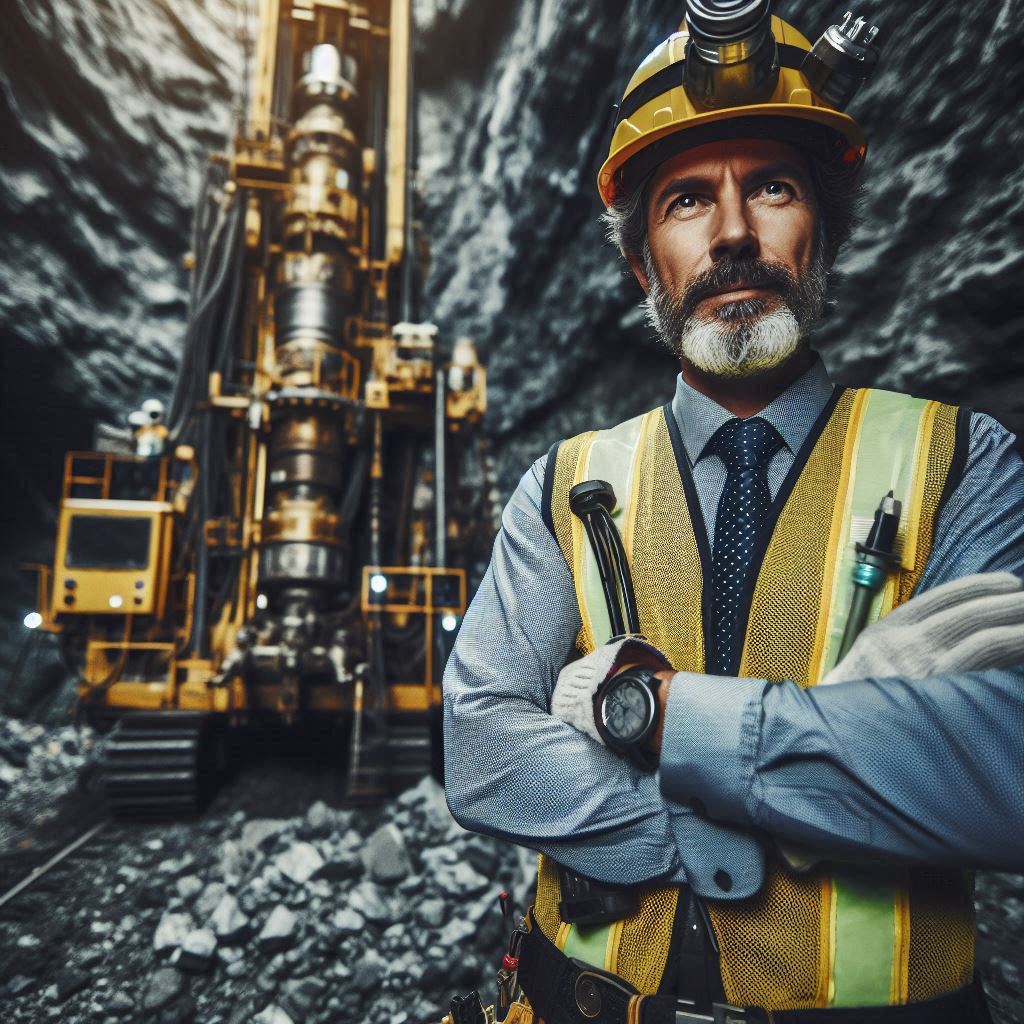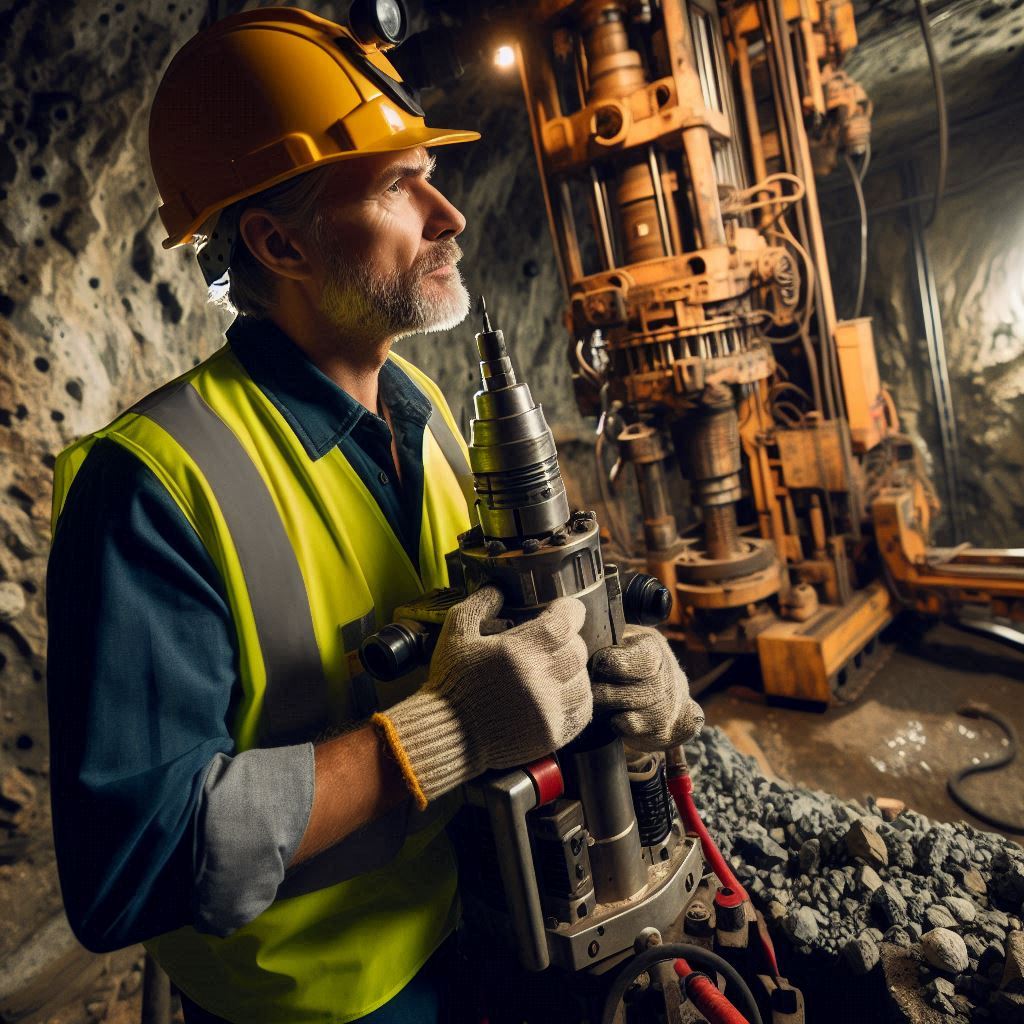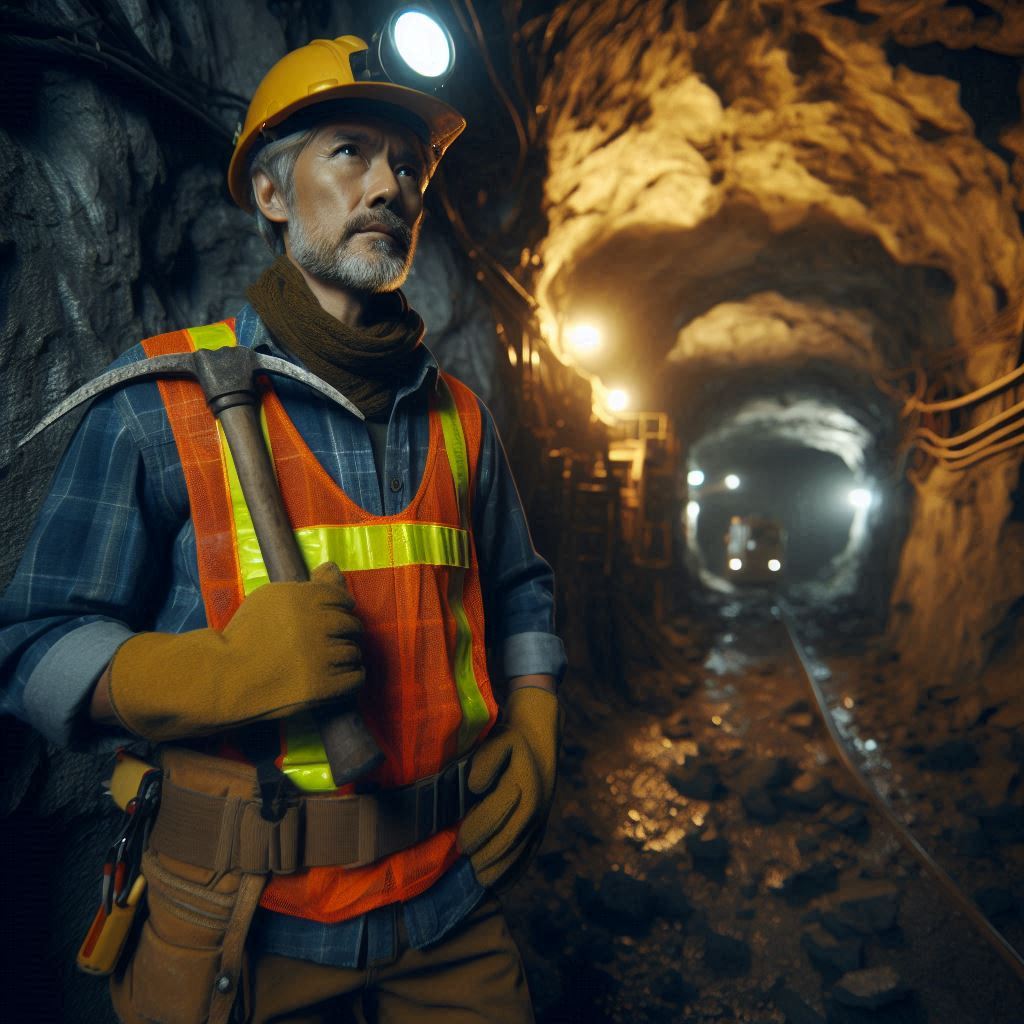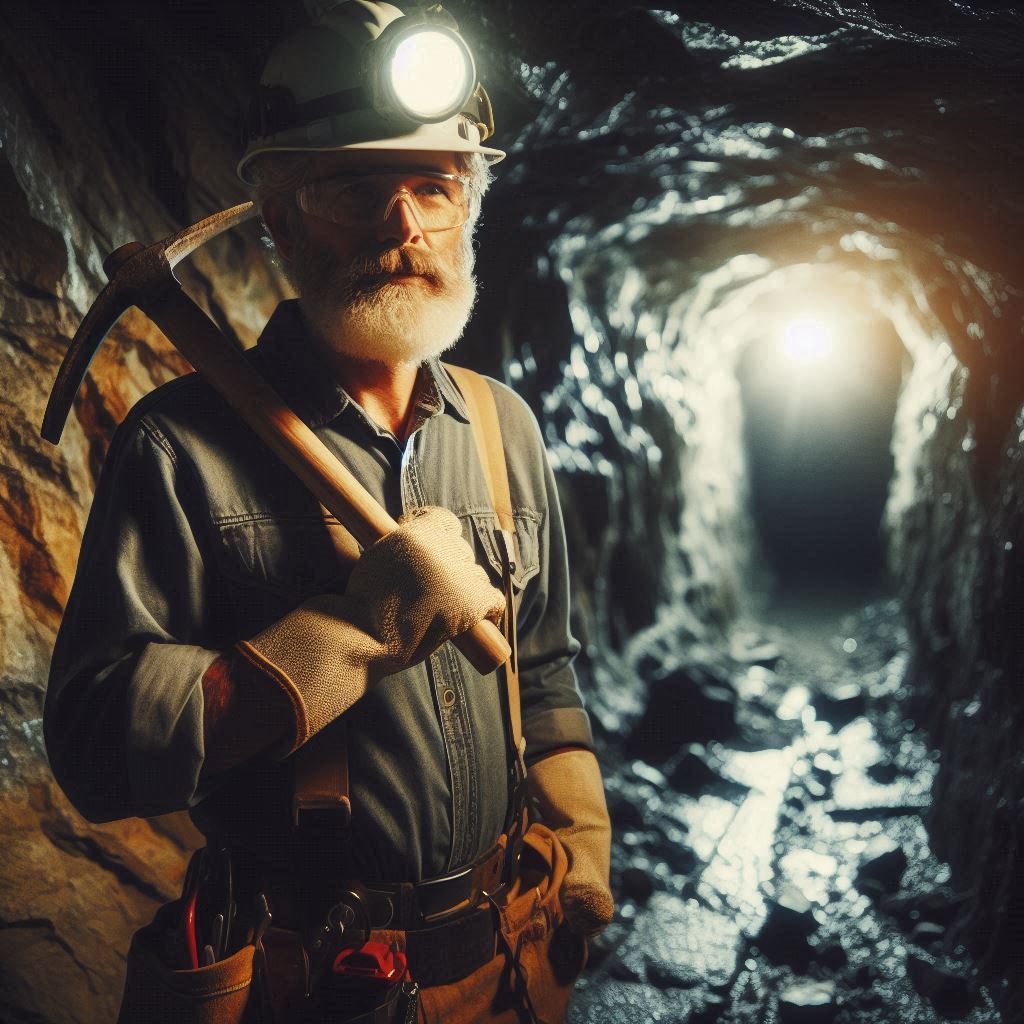Introduction
Mining engineers and geological engineers play crucial roles in the extraction and management of natural resources.
Mining engineers focus on designing and overseeing mining operations.
They plan how to efficiently and safely extract minerals from the earth.
Their work involves evaluating mining sites, managing excavation processes, and ensuring environmental compliance.
Geological engineers, on the other hand, study the physical aspects of the earth to assess natural resources.
They analyze rock formations, soil, and groundwater to understand geological conditions.
Their goal is to identify and evaluate potential sites for mining or construction.
They also assess risks related to geological hazards.
Understanding the key differences between these two professions is essential for several reasons.
Both roles contribute to resource management, but their approaches and expertise differ significantly.
Mining engineers concentrate on the practical aspects of resource extraction.
They focus on operational efficiency, safety, and environmental impact.
Geological engineers provide critical insights into the geological characteristics of resource sites.
Their work supports the mining engineers by providing data on rock stability and resource quality.
Recognizing these differences helps in making informed career choices and improves collaboration between these professionals.
Each role complements the other, making their cooperation vital for successful resource management.
Understanding their distinct responsibilities ensures that projects benefit from both operational expertise and geological insights.
Job Responsibilities
Mining Engineers
A mining engineer focus primarily on extracting minerals from the Earth.
They design and develop mining operations, ensuring efficient and safe extraction processes.
Their work includes planning mine layouts, overseeing drilling operations, and managing the day-to-day activities of mining sites.
They address practical aspects of mining, such as equipment use, safety protocols, and operational efficiency.
Mining engineers also work on improving techniques for mineral extraction and ore processing.
Their responsibilities extend to optimizing mining operations to maximize resource recovery.
They work closely with geologists to understand the mineral deposits and plan the best extraction methods.
Ensuring the safety of workers and minimizing environmental impact are key parts of their role.
Mining engineers also handle regulatory compliance and coordinate with various teams to ensure smooth operations.
Geological Engineers
On the other hand, focus on studying the Earth‘s materials and structures.
Their primary goal is to ensure safe and sustainable construction projects.
They analyze soil, rock, and groundwater to assess stability and suitability for construction.
Geological engineers conduct site investigations and surveys to evaluate the physical properties of the Earth.
Their work is critical in designing foundations, tunnels, and other structures.
They ensure that construction projects are built on stable ground and that potential risks are identified and mitigated.
Geological engineers also evaluate natural hazards, such as landslides and earthquakes, to enhance construction safety.
Read: The Role of Aerospace Engineers in Satellite Development
Educational Requirements
Mining Engineer
A mining engineer typically needs to obtain a bachelor’s degree in mining engineering or a related field.
The coursework for this degree program usually includes subjects such as geology, mineral processing, mine design, and safety practices.
In addition to the technical aspects of engineering, mining engineers also learn about the environmental impact of mining operations and sustainable practices in resource extraction.
They may also take courses in management and economics to understand the business side of the industry.
Furthermore, some mining engineers choose to pursue advanced degrees such as a Master’s or Ph.D.
in mining engineering to specialize in a particular area of interest or advance their career prospects.
These higher degrees can open up opportunities for research, teaching, or leadership roles in the field.
Geological Engineer
On the other hand, a geological engineer typically pursues a bachelor’s degree in geological engineering or geology.
This educational path focuses on understanding the Earth’s processes, including the formation of rocks, minerals, and natural resources.
Geological engineering programs cover a wide range of subjects, including structural geology, sedimentology, hydrogeology, and geotechnical engineering.
Students also learn how to analyze geological data, interpret maps, and assess the feasibility of geological projects.
Like mining engineers, geological engineers also study environmental considerations and sustainability practices related to their work.
They may explore topics such as groundwater contamination, natural hazards, or land reclamation to mitigate the impact of engineering projects on the environment.
In addition to their undergraduate degree, some geological engineers pursue further education through graduate programs to enhance their expertise or explore specialized areas of research.
Advanced degrees can lead to opportunities in academia, research institutions, or consulting firms.
Read: Aerospace Engineering in Commercial Spaceflight
Skills Needed
Mining Engineer: Strong Knowledge of Mining Processes, Equipment Operation, and Safety Protocols
Mining engineers specialize in the extraction of minerals and resources from the Earth.
They possess a strong knowledge of mining processes.
This includes techniques for drilling, blasting, and ore extraction.
They are skilled in operating complex mining equipment and ensuring it functions efficiently.
Safety is a top priority for mining engineers.
They develop and enforce safety protocols to protect workers and the environment.
This involves managing risk assessments and complying with safety regulations.
Mining engineers optimize resource extraction while minimizing environmental impacts.
Their work often takes place on-site, requiring both technical proficiency and practical problem-solving skills.
Geological Engineer: Strong Understanding of Geology, Soil Mechanics, and Environmental Regulations
Geological engineers focus on the Earth‘s materials and processes.
They have a deep understanding of geology and soil mechanics.
This knowledge helps them assess soil stability and identify suitable construction sites.
Geological engineers study rock formations, groundwater, and environmental conditions.
They apply their expertise to ensure safe and effective construction practices.
An essential part of their role is understanding and adhering to environmental regulations.
They evaluate potential environmental impacts and recommend mitigation measures.
Geological engineers conduct field surveys and analyze data to integrate geological insights into engineering projects.
Their work often involves collaboration with other engineers and scientists.
Read: Essential Aerospace Engineering Textbooks
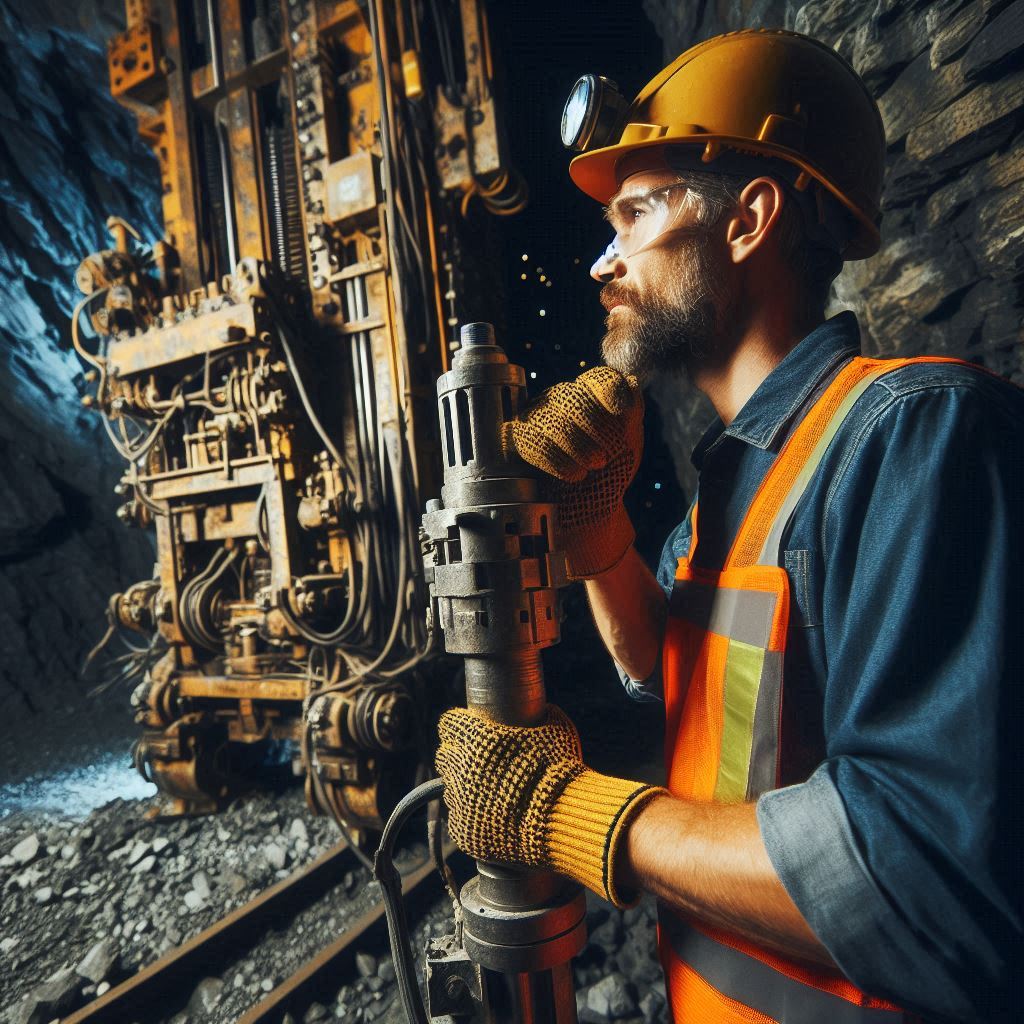
Work Environment
Mining Engineer
Mining engineers are frequently found working in mines, quarries, and consulting firms.
These environments are characterized by heavy machinery, underground tunnels, and specialized equipment used for extracting minerals and resources from the earth.
In mines, mining engineers oversee the extraction process, ensuring that operations run efficiently and safely.
They are responsible for designing mining plans, monitoring production levels, and implementing safety protocols to prevent accidents and hazards.
Working in quarries, mining engineers focus on extracting construction materials like gravel, sand, and limestone.
They manage operations to ensure a steady supply of materials for various construction projects, such as roads, buildings, and infrastructure development.
Within consulting firms, mining engineers provide expert advice on mining projects, feasibility studies, and environmental impact assessments.
They collaborate with clients, government agencies, and stakeholders to develop sustainable mining practices and adhere to regulatory standards.
Geological Engineer
In contrast, geological engineers are more likely to work in construction companies, environmental agencies, or research institutions.
Their work environments vary from field sites to office settings, depending on the nature of their projects.
Within construction companies, geological engineers play a crucial role in assessing the geological conditions of sites for building structures, roads, and underground infrastructure.
They conduct site investigations, soil testing, and geological surveys to ensure the stability and safety of construction projects.
Environmental agencies often employ geological engineers to evaluate the impact of human activities on natural landscapes, water resources, and ecosystems.
These professionals conduct geological studies, environmental assessments, and remediation projects to protect the environment and mitigate potential hazards.
In research institutions, geological engineers focus on studying the Earth’s processes, natural hazards, and geological formations.
They conduct field research, data analysis, and laboratory experiments to advance scientific knowledge and develop innovative solutions for geological challenges.
Overall, both mining engineers and geological engineers contribute to society by applying their expertise in different work environments.
While mining engineers specialize in extracting minerals and resources, geological engineers focus on understanding the Earth’s composition and addressing environmental concerns.
By working in diverse settings, these professionals play a vital role in shaping our natural and built environments.
Read: The Impact of Aerospace Engineering on Modern Life
Salary Expectations
Mining Engineer: Typically Earns a Higher Salary Due to the Specialized Nature of the Work
Mining engineers generally earn higher salaries than their geological engineer counterparts.
The specialized nature of their work drives this difference.
Mining engineers manage complex extraction processes and oversee operations in challenging environments.
Their responsibilities include ensuring safety, optimizing resource recovery, and dealing with high-risk conditions.
The demanding nature of these tasks justifies their higher compensation.
The need for specialized skills and the risks associated with mining contribute to their elevated salaries.
Engineers often work in remote locations, adding to the complexity and intensity of their roles.
These factors combine to offer a significant salary premium for mining engineers.
Geological Engineer: Salary Can Vary Depending on Industry and Experience Level
Geological engineers experience more variability in their salaries.
Their earnings depend largely on the industry they work in and their level of experience.
Geological engineers focus on studying the Earth’s materials and processes, applying their expertise across various sectors.
In construction or environmental management, their salaries may be more moderate compared to those in energy or mining industries.
Experience plays a crucial role in determining their salary range.
More experienced geological engineers often command higher wages due to their accumulated knowledge and skills.
Additionally, geographical location impacts their earnings, with those in high-demand areas receiving better compensation.
Geological engineers benefit from diverse career opportunities, but their salary can fluctuate based on industry and experience.
Job Outlook
Mining Engineer
Mining engineers play a crucial role in the extraction of minerals and other resources from the earth.
Their job prospects are closely tied to the health of the mining industry.
As such, the demand for mining engineers may fluctuate depending on various factors such as commodity prices, technological advancements, and global economic conditions.
Despite these fluctuations, the overall job growth for mining engineers is expected to be steady in the coming years.
This is due to the continuous need for raw materials in various industries and the exploration of new mining sites to meet these demands.
Geological Engineer
Geological engineers, on the other hand, are at the forefront of addressing environmental concerns and promoting sustainable development practices.
With an increasing focus on environmental protection and resource conservation, the demand for geological engineers is on the rise.
Companies and government agencies are actively seeking professionals who can assess geological risks, design land reclamation projects, and develop sustainable solutions for construction and mining activities.
This trend towards sustainability and eco-friendly practices is expected to create more job opportunities for geological engineers in the coming years.
Professional Development
Professional Development for Mining Engineers
Mining engineers have a range of opportunities for career advancement within the mining industry.
With experience and expertise, mining engineers can transition into managerial or executive roles within mining companies.
These positions may involve overseeing mining operations, developing strategic plans for mining projects, or managing teams of engineers and workers.
One key aspect of professional development for mining engineers is gaining practical experience in various aspects of mining operations.
This hands-on experience allows mining engineers to develop a deep understanding of the mining process, safety protocols, and environmental regulations.
By honing their skills in these areas, mining engineers can demonstrate their expertise and suitability for leadership roles within the industry.
Another important aspect of professional development for mining engineers is staying current with technological advancements in the field.
As new technologies emerge to improve efficiency, safety, and sustainability in mining operations, mining engineers must continually update their skills and knowledge to remain competitive in the industry.
This may involve attending industry conferences, participating in continuing education programs, or pursuing certifications in specialized areas of mining engineering.
In addition to technical skills, successful mining engineers also need strong leadership and communication abilities to effectively manage teams and projects.
Developing these soft skills is an essential component of professional development for mining engineers seeking to advance to managerial or executive positions within mining companies.
Professional Development for Geological Engineers
Geological engineers also have a variety of opportunities for professional development that cater to their specific interests and goals within the field.
Unlike mining engineers, geological engineers may choose to specialize in areas such as geotechnical engineering or environmental consulting.
Geotechnical engineering involves analyzing and designing structures, such as dams, tunnels, and foundations, based on the properties of soil and rock formations.
Geological engineers specializing in geotechnical engineering may pursue advanced education or certifications in this area to enhance their expertise and expand their career opportunities.
For geological engineers interested in environmental consulting, professional development may involve gaining expertise in assessing environmental risks, conducting remediation projects, and advising clients on sustainable practices.
This specialization allows geological engineers to work closely with environmental agencies, private companies, and government entities to address environmental challenges and promote sustainability in various industries.
Networking and building relationships with professionals in related fields is also an important aspect of professional development for geological engineers.
By connecting with geologists, environmental scientists, construction professionals, and other experts, geological engineers can collaborate on projects, exchange ideas, and explore new career opportunities that align with their interests and skills.
Therefore, professional development for both mining engineers and geological engineers is a dynamic and ongoing process that requires a combination of technical expertise, leadership skills, and industry knowledge.
By actively seeking opportunities for growth and advancement, mining and geological engineers can enhance their careers, expand their professional networks, and make meaningful contributions to the fields of mining and geological engineering.
Transform Your Career Today
Unlock a personalized career strategy that drives real results. Get tailored advice and a roadmap designed just for you.
Start NowSee Related Content: Education Pathways for Aspiring Systems Engineers
Conclusion
Mining engineers and geological engineers play distinct yet complementary roles in the resources sector.
Mining engineers focus on the extraction process, ensuring efficient and safe operations.
They design and manage mining activities, emphasizing resource recovery and environmental management.
Their work involves overseeing drilling, processing, and extraction methods.
On the other hand, geological engineers concentrate on understanding earth materials and their properties.
They assess geological formations to determine the potential for mineral deposits.
Their responsibilities include mapping, sampling, and analyzing geological data to guide exploration efforts.
Geological engineers work closely with geologists to identify valuable resources.
Choosing the right career path requires aligning personal interests and skills with the job‘s demands.
Mining engineers should be interested in operational management and problem-solving in extraction environments.
They often work in challenging and physically demanding settings.
Geological engineers, however, should enjoy fieldwork, data analysis, and geological assessments.
Both careers offer unique opportunities and challenges.
Consider your passion for either operational management or geological analysis when making a decision.
Evaluating your skills and interests can lead to a fulfilling career in the resources industry.
By choosing the right path, you can make a significant impact in your field and enjoy a rewarding professional journey.

